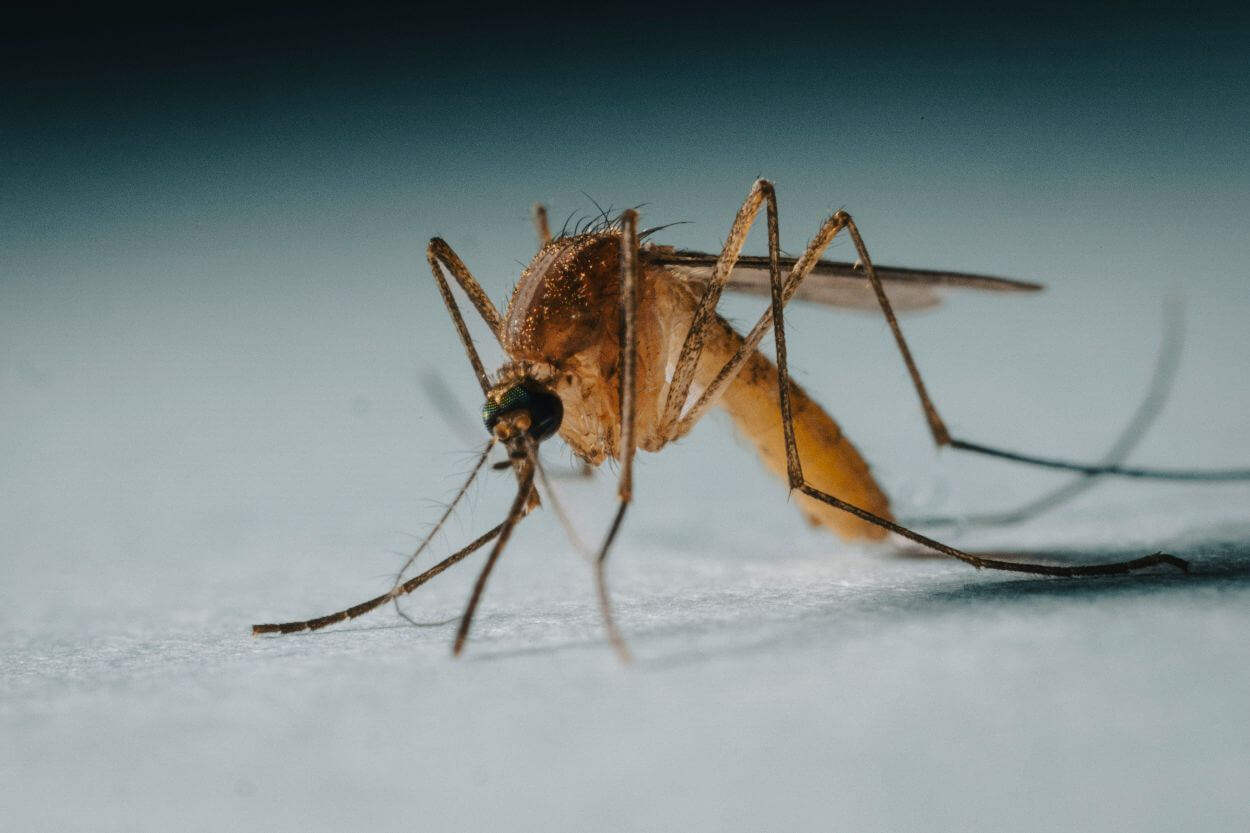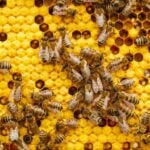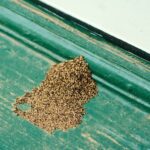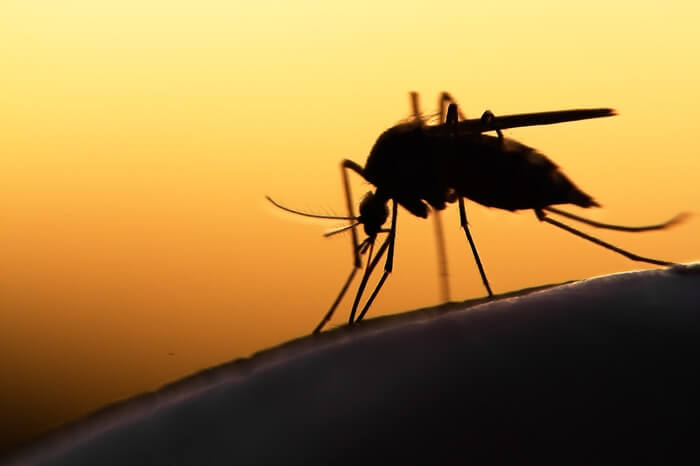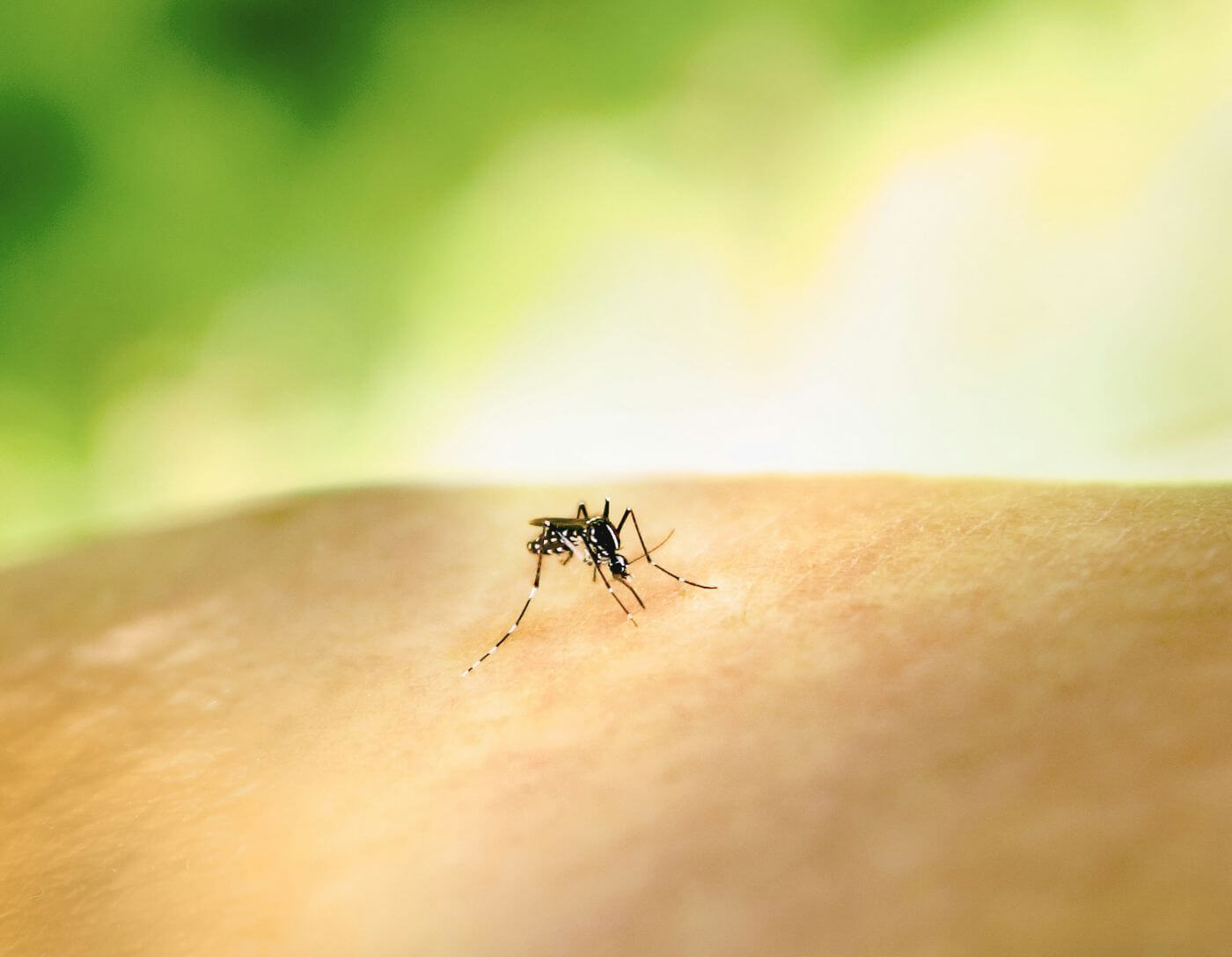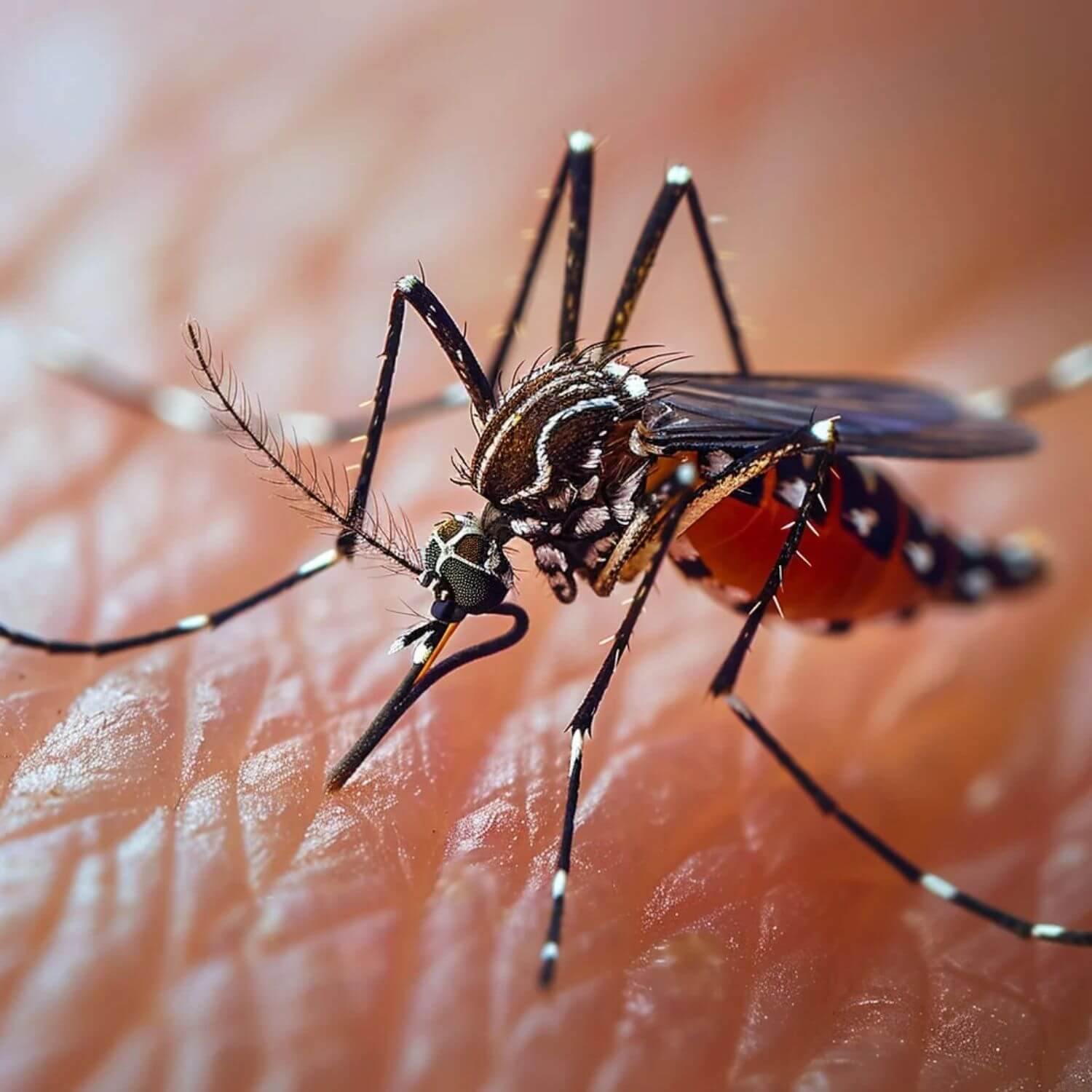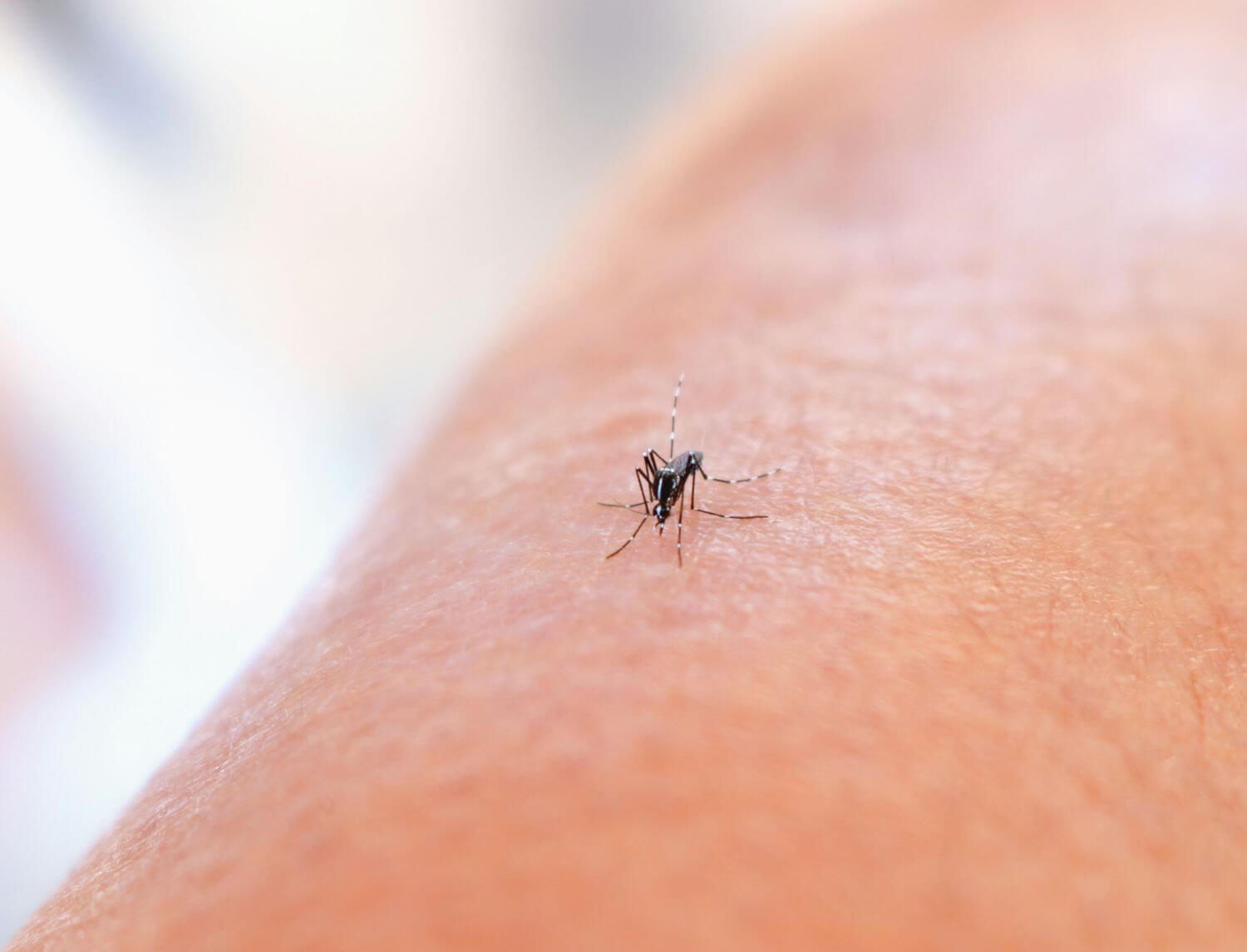Nothing ruins a nice evening outside quite like the annoying buzz of mosquitoes. These tiny pests seem to appear out of nowhere when the weather gets warm, and they stick around way longer than anyone wants. Many people wonder exactly when mosquitoes go away and if there’s anything that can speed up the process.
Mosquitoes Don’t Actually Go Away
Here’s the thing about mosquitoes: they don’t really “disappear” like you might think. When winter comes, mosquitoes have two main options. They can die off completely, or they can find a cozy spot to hide and wait out the cold.
Many mosquitoes do die when temperatures drop. But plenty of them are smarter than that. Female mosquitoes will look for warm hiding spots like basements, hollow logs, or even your garage. Once they find a good spot, they basically go to sleep for months. Their bodies slow down almost completely, and they can stay this way until spring returns.
Other mosquitoes take a different approach. Instead of trying to survive the winter themselves, they lay eggs in protected spots before they die. These eggs are incredibly tough and can sit frozen all winter long. When warm weather comes back, the eggs hatch and create a whole new generation of mosquitoes.
Some mosquito eggs can actually survive for years, just waiting for the right conditions. That means even if every adult mosquito in your area dies during a harsh winter, you’ll still have plenty of new ones in spring.
This is why the answer to “when do mosquitoes go away” isn’t simple. Some truly go away by dying. Others just take a long winter nap.
The Magic Temperature Number for Mosquito Activity
Temperature controls everything when it comes to mosquito behavior. In the United States, most mosquito species become active when temperatures hit 50 degrees Fahrenheit and above. They thrive when the temperature is around 80 degrees Fahrenheit.
You will start to notice these critters start to decrease in population when the air gets cooler than 50 degrees. Usually, in some states it is late October to early November that you’ll start to notice no more mosquito activity around your property.
At 60°F, the mosquito life cycle slows way down. In fact, many species enter diapause, a type of hibernation, to survive the colder temperatures, at 50° Fahrenheit. Once the temperature hits below freezing (anything below 32℉), any adult mosquitoes not hibernating will not survive.
This temperature threshold explains why mosquitoes go away at different times depending on where you live. Southern states stay warmer longer, so mosquitoes remain active well into fall and sometimes even winter.
First Frost Signals the End of Active Mosquito Season
The first frost is generally the end of the line for mosquitoes. A hard or killing frost will kill virtually all exposed mosquitoes. A killing frost is defined as two consecutive hours at a temperature below 28 degrees Fahrenheit.
Experts say mosquito season winds down with the first hard frost. However, some say this first frost is happening later over time. If we look at the average, with the warming climate since 1950, the average frost date has been pushed back by, on the order of a week and a half.
This means that in many areas, mosquitoes go away later than they used to. With the frost dates delaying overtime, mosquito populations can thrive for longer periods of time and continue to spread illnesses like Eastern Equine Encephalitis (EEE) and West Nile Virus.
The first frost acts like nature’s reset button for mosquito populations. Any mosquitoes still flying around when it hits will be knocked out of action.
Regional Differences Across the United States
When mosquitoes go away depends heavily on where you live. Depending on where you live, this might be as early as February and last as long as October or November. Some regions, particularly in the warm and humid southeastern United States, can even have mosquitoes all year round.
Here’s how mosquito seasons break down by region:
Southern States: In the extreme South and Hawaii, mosquito season has been known to last throughout the year! The mosquito season in Florida will vary depending on which part of the state you’re located in. The cooler northern portion normally doesn’t begin to experience mosquito activity until early March, while South Florida may see mosquitoes in early February.
Mid-Atlantic and Midwest: More mild regions of the U.S. have a delayed start compared to these Southern regions. The Mid-Atlantic, Midwest, and Western U.S. are likely to have mosquitoes first emerge a bit later, around early April.
Northern States: The Northern U.S. and the Pacific Northwest might not see any signs of mosquitoes until late April to early May, varying from year to year. In contrast, the mosquito season in Alaska is notoriously brief. While the mosquito season in southern Alaska generally starts in early May, it might begin as late as mid-June in the northern regions of the state and end by late July.
Understanding these regional patterns helps explain why mosquitoes go away at such different times across the country.
What Happens to Mosquitoes During Winter Months
Mosquitoes are cold-blooded insects and cannot regulate their body temperature. When cold weather starts to set in, adult mosquitoes will become lethargic. When temperatures reach below 50 degrees Fahrenheit, the mosquitoes will stop flying altogether.
Before they stop flying, adult female mosquitoes will focus on laying the last eggs before they freeze, or finding the warmest spot to overwinter. Mosquitoes tend to favor warm, sheltered areas such as underground sewer drains, sheds, garages, basements, inside logs, woodpiles and animal burrows.
Only the females hibernate. Male mosquitoes have short lifespans and die after mating, which means they don’t usually make it to winter. Females mosquitoes, however, can hibernate for up to six months.
Mosquitoes may experience two possible stages during this period of dormancy: Diapause – Blood-feeding females slow their metabolisms and remain in a paused state of development until warmer temperatures return. Quiescence – The adult female mosquito dies, but the eggs remain dormant until they’re reactivated.
This is why mosquitoes go away during winter but always seem to come back in spring. They’re not really gone, just waiting for better conditions.
Climate Change is Extending Mosquito Season
As global temperatures rise due to climate change, mosquito season has lengthened across much of the contiguous United States, a development that scientists warn could heighten the risk of outbreaks of diseases such as dengue and malaria, and the spread of West Nile and Zika viruses.
Mosquito activity is temperature dependent, and because of the rising temperatures caused by climate change, the mosquito season is able to start earlier in the spring and go longer into the fall. Over the past four decades, more than two-thirds of the country has seen an increase in “mosquito days” — defined as days with an average humidity of at least 42 percent and temperatures between 50 and 95 degrees Fahrenheit.
From 1979 to 2022, 173 locations (71% of the 242 analyzed) experienced an increase in annual mosquito days—by about 16 days on average. In 55 locations, annual mosquito days increased by 21 days or more.
This means that mosquitoes go away later and come back earlier than they used to. The research found that global temperature rises could lengthen annual transmission seasons by more than a month for malaria and four months for dengue over the next 50 years.
Peak Mosquito Season Varies by Location
Even when mosquitoes are active, they have peak times when they’re most troublesome. August and September are the peak months for mosquito-borne illnesses in the U.S. because the populations have had more time to grow and spread viruses than earlier in the season.
The most intense activity comes in June, July and August, but the mosquitoes have been around longer and longer in recent years.
No matter where you are, you can expect to deal with mosquitoes and their itchy bites throughout the summertime. That reality is true for all of the U.S. and almost the rest of the planet as well; the only two places on Earth that are generally mosquito-free are Antarctica and Iceland.
Understanding peak season helps you know when mosquitoes go away from their most active periods, even if they don’t disappear completely.
Different Mosquito Species Have Different Survival Strategies
According to the American Mosquito Control Association, West Virginia has the fewest number of mosquito species (26), while Texas has the most (85). Each species has its own way of dealing with cold weather.
Some species of mosquito hibernate through the winter in hiding spots like burrows created by other animals. Other species go through winter in immature life stages and wait until warmer weather presents itself before continuing their development. The Aedes aegypti and Aedes albopictus mosquitoes, known transmitters of the Zika virus, overwinter in the egg stage.
Michigan is home to about 70 different native species of mosquitoes, with variance in their biology and seasonality. Some peak earlier in the spring while others continue until later in the summer.
This variety explains why mosquitoes go away at different times and why some seem to stick around longer than others in the same area.
Why Some Mosquitoes Survive Winter Better Than Others
The females accumulate plenty of fat to sustain them over the winter. Research has found that “a hormonal response is behind the mosquito’s ability to store up extra fat and halt reproductive activity in preparation for its months-long dormancy”.
A study at Ohio State University examined the effects of disrupting the mosquito’s dormancy cycle to find the link to their development and survival. Disrupting a mosquito’s dormancy state for just four days resulted in 80% of the population’s death within three weeks.
In tropical areas, mosquitoes are active year round. In temperate climates, adult mosquitoes of some species become inactive with the onset of cool weather and enter hibernation to live through the winter. Some kinds of mosquitoes have winter hardy eggs and hibernate as embryos in eggs laid by the last generation of females in late summer.
The mosquitoes that survive winter are basically the ones that planned ahead. The ones that didn’t prepare properly are the ones that truly go away for good.
Preparing Your Property Before Cold Weather Hits
Even though mosquitoes go away naturally when it gets cold, you can take steps now to make sure fewer come back next year. If you prepare your property during the winter, you can avoid a mosquito population boom in the future.
Once a week, empty and scrub, turn over, cover, or throw out any items that hold water like tires, buckets, planters, toys, pools, birdbaths, flowerpot saucers, or trash containers. Mosquitoes lay eggs near water.
Even the smallest amount of water can serve as an ideal breeding ground for mosquitoes, and any water that’s left standing for more than seven days is fair game. Drains and gutters may have become clogged up with debris over the winter.
Check your yard frequently for anything that could hold water. Sometimes you may have a mosquito breeding site in your backyard without even knowing it because of a tarp, flower pot, or bucket that happens to be holding water.
Taking care of these issues before mosquitoes go away for winter means you’ll have fewer problems when they return.
Daily Activity Patterns When Mosquitoes Are Still Active
There are day-biting and dawn/dusk-biting mosquitoes, so after dusk is when mosquitos rest and “go away” at night. The timing of dusk and when it ends will depend on where you live and the time of year.
Most mosquito species in the U.S. have an increased activity from dusk to dawn, which means you’re more likely to get bit if you step outside at that time. Even when the overall mosquito season is winding down, they’re still most active during these times.
You may have noticed mosquitoes buzzing around in the early morning. Mornings in Texas are typically cooler and more humid. Prime conditions for mosquitos. During this time they can avoid direct sunlight and if there is moisture in the air, they may find dewy puddles to hydrate.
Knowing when mosquitoes go away during the day can help you time your outdoor activities better during the fall months when they’re still around.
Standing Water Remains a Problem Even in Fall
Fall and winter are good times of year to locate and eliminate these breeding sources to help prevent mosquito problems during the warmer months. Without water, adult mosquitoes will not have any places to lay their eggs and grow their larvae, which hatch into biting adults.
While it’s obvious that a mosquito can lay eggs in the stagnant water inside an old tire, it may not be so obvious that they can also lay eggs where they’ve always laid eggs – in natural areas that accumulate water. Keep an eye out for places on your property that have standing water, including mud puddles, tire tracks and poorly drained low areas.
The eggs hatch into wrigglers which go through several moults before emerging from pupae onto the water surface as adults in as little as seven days.
Even when most mosquitoes go away for the season, eliminating standing water prevents the ones that are left from creating more problems.
Professional vs DIY Mosquito Control in Late Season
If you want the best mosquito control for your yard, prepare for battle early and choose a product that offers long-term control. Complete mosquito development from egg to adult can vary by temperature, but it generally takes between 10 to 14 days.
Professional mosquito control methods tend to be much more effective than any DIY methods, and you have a variety from which to choose. Mosquito misting systems can work well in yards by creating a barrier of protection around your home.
Some species of adult mosquitoes can travel for miles, so sometimes controlling and eliminating larvae is not enough. Adult mosquitoes can be controlled using a few different do-it-yourself methods, but keep in mind most of these products are risky and could cause harm to non-target insect species if not applied according to the instructions on the label.
Professional help can be especially valuable in the shoulder seasons when you’re waiting for mosquitoes to go away naturally but still want to enjoy time outside.
What to Expect When Warm Weather Returns
When temperatures rise in spring, these mosquitoes begin feeding, complete their immature growth and eventually emerge as adults to continue their kind. The cycle starts all over again.
When the weather warms up again – and with a bit of rain – the eggs that survived the winter will hatch and start their lifecycle. This is why it’s so important to eliminate breeding sites before mosquitoes go away for winter.
When the weather warms up they re-emerge and lay their eggs to start the life cycle and a new mosquito season all over again.
The mosquitoes that come back in spring aren’t necessarily new ones. Many are the same populations that went into hiding when cold weather hit, just waiting for their chance to become active again.
Understanding when mosquitoes go away and what happens during their dormant period helps you plan better mosquito control strategies. While you can’t make mosquitoes go away permanently, knowing their patterns gives you the upper hand in managing them around your property. The key is taking action before they go away for winter and being ready when they return in spring.

